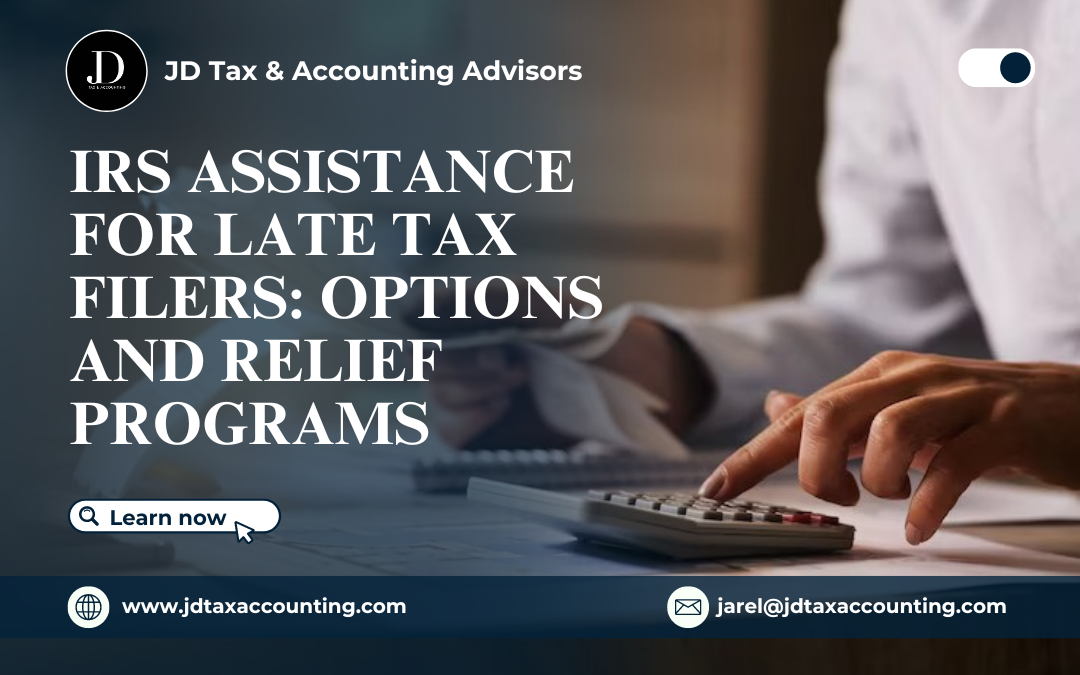What IRS Assistance for Late Tax Filers is Available for Business Owners?
Business owners who missed the April deadline for filing their 2023 federal income tax return still have several options available to manage their tax obligations. The IRS offers various payment programs to assist those facing financial difficulties and provides special first-time penalty relief for eligible taxpayers.
Immediate Actions to Minimize Penalties and Interest
It’s crucial to file your tax return and pay any owed taxes as soon as possible to limit penalties and interest charges. The interest rate for unpaid taxes is currently 8%, compounded daily, while the late-filing penalty is generally 5% per month and the late-payment penalty is 0.5% per month, both capping at 25%. If your return is filed over 60 days past the due date, the minimum penalty is $485 or 100% of the unpaid tax, whichever is less.
To mitigate these charges, taxpayers can pay their taxes electronically through IRS Direct Pay, a free and convenient service available on the IRS website.
Filing Extensions and Payment Options
An extension to file provides an additional six months, moving the deadline to October 15, but it does not extend the time to pay any owed taxes. Penalties and interest will continue to accrue on any unpaid taxes after April 15.

If you can’t pay in full by the tax deadline, it’s still important to file your tax return and pay as much as you can. The IRS offers several payment options for the remaining balance:
- Short-term Payment Plan: For balances under $100,000, providing up to 180 days to pay in full.
- Long-term Payment Plan: For balances under $50,000, allowing monthly payments over 72 months. Direct debit is required for balances between $25,000 and $50,000.
Interest and late-payment penalties will continue to accrue, but the failure-to-pay penalty is halved during an installment agreement.
Penalty Relief Opportunities
Taxpayers who receive a penalty notice should carefully review it and follow the instructions for requesting relief. Those who have filed and paid on time for the past three years may qualify for first-time penalty abatement. Additionally, taxpayers may receive relief if their failure to file or pay on time was due to reasonable cause rather than willful neglect. However, interest on unpaid taxes cannot be abated based on reasonable cause or first-time relief.
Automatic Extensions
Certain taxpayers automatically qualify for additional time to file and pay taxes without penalties or interest, including:
- Taxpayers in disaster areas
- U.S. citizens and residents living and working abroad
- Military members on duty outside the U.S. and those in combat zones
Adjust Withholding to Avoid Future Issues
To prevent unexpected tax bills or penalties next year, business owners should annually check their tax withholdings. The Tax Withholding Estimator on the IRS website can help determine if adjustments are needed by submitting a new Form W-4 to their employer.
By understanding and utilizing these IRS resources, business owners can better manage their tax responsibilities and avoid unnecessary penalties.
If you’d like to discuss a strategy for your small business and help you with your taxes, Book your free consultation with us today!


